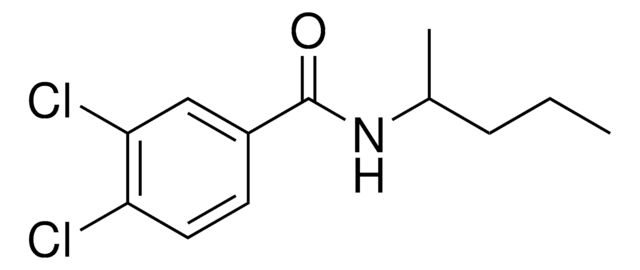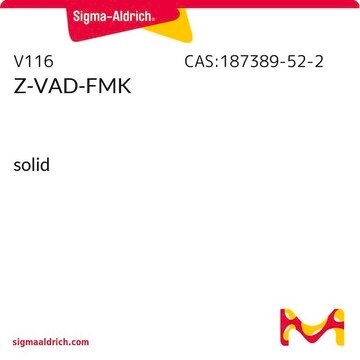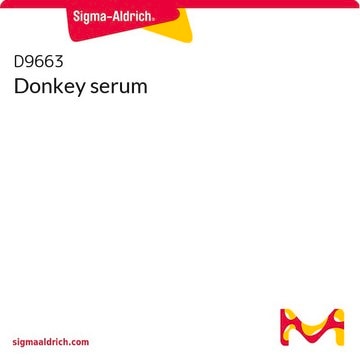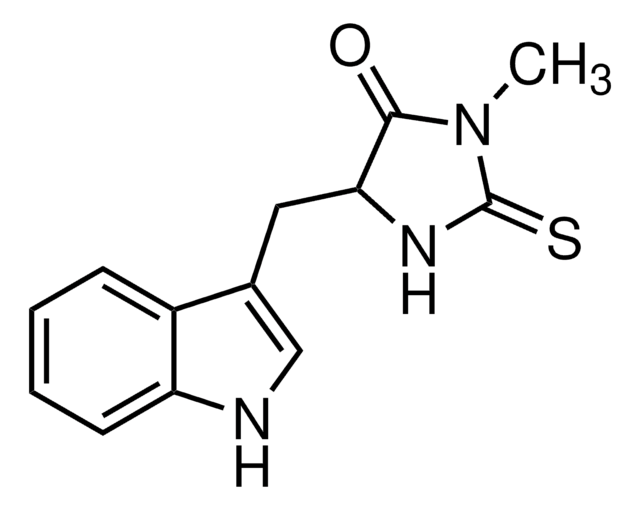454870
MARK/Par-1 Activity Inhibitor, 39621
The MARK/Par-1 Activity Inhibitor, 39621 controls the biological activity of MARK/Par-1. This small molecule/inhibitor is primarily used for Phosphorylation & Dephosphorylation applications.
Synonym(s):
MARK/Par-1 Activity Inhibitor, 39621, Microtubule Affinity Regulating Kinase Inhibitor, MAP Affinity Regulating Kinase Inhibitor, PAR1 Inhibitor, N-(2,5-Dimethylphenyl)-2-(4-(4-methoxyphenyl)-3-oxo-3,4-dihydropyrazin-2-ylthio)acetamide, N-(2,5-Dimethylphenyl)-2-(4-(4-methoxyphenyl)-3-oxo-3,4-dihydropyrazin-2-ylthio)acetamide, Microtubule Affinity Regulating Kinase Inhibitor, MAP Affinity Regulating Kinase Inhibitor, PAR1 Inhibitor
About This Item
Recommended Products
Quality Level
assay
≥98% (HPLC)
form
solid
manufacturer/tradename
Calbiochem®
storage condition
OK to freeze
protect from light
color
beige
solubility
DMSO: 100 mg/mL, clear, yellow
shipped in
ambient
storage temp.
−20°C
SMILES string
O=C1C(SCC(NC2=C(C)C=CC(C)=C2)=O)=NC=CN1C3=CC=C(C=C3)OC
InChI
1S/C21H21N3O3S/c1-14-4-5-15(2)18(12-14)23-19(25)13-28-20-21(26)24(11-10-22-20)16-6-8-17(27-3)9-7-16/h4-12H,13H2,1-3H3,(H,23,25)
InChI key
CGRJEWQUCBVSJR-UHFFFAOYSA-N
General description
Packaging
Warning
Reconstitution
Other Notes
Legal Information
Storage Class
11 - Combustible Solids
wgk_germany
WGK 3
flash_point_f
Not applicable
flash_point_c
Not applicable
Certificates of Analysis (COA)
Search for Certificates of Analysis (COA) by entering the products Lot/Batch Number. Lot and Batch Numbers can be found on a product’s label following the words ‘Lot’ or ‘Batch’.
Already Own This Product?
Find documentation for the products that you have recently purchased in the Document Library.
Our team of scientists has experience in all areas of research including Life Science, Material Science, Chemical Synthesis, Chromatography, Analytical and many others.
Contact Technical Service








